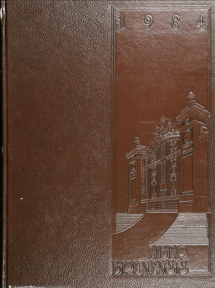Abstract
This interview with members of the Brown University class of 1984 captures the experiences of Jean Eastman, Kristen Duckett, Amy Hayes Davidsen, Marcia May Brown, Patti Schallman, Maria Denise Mileno, Surrenthia Renee Parker, Barbara Reid Norris, Karla Elrod, Pamela Arya, and Joy Brownstein, at their 25th reunion.
The interview begins with an introduction from each interviewee including with her name, major, current occupation, and place of residence. They each recall their reasons for attending Brown and their first experiences on campus. Brown, Parker, and Elrod, agree that there was a comprehensive support system for minority students on campus both among the students and institutionally through programs such as the Third World Transition Program –a program that welcomes new students to Brown and provides an exploration of systems of oppression that exist in society including racism, classism, sexism, cissexism, heterosexism, ableism, and imperialism. Conversely, the other interviewees lament the lack of guidance they received from the administration, particularly with the new curriculum that abolished course requirements.
The interviewees explain their various jobs on and off campus while they were in school and most identify them as positive and inclusive experiences. However, the conversation then turns to a recently published memoir by a 1985 Brown University graduate named Frances Lefkowitz. Entitled, To Have Not, Lefkowitz’s book deals with class struggle and the socioeconomic isolation that she felt on campus. The group’s conversation about Lefkowitz and To Have Not incites an extensive discussion of the group’s feelings, or lack thereof, of isolation between students of different economic statuses on campus.
Conversation briefly turns to the awareness of sex, sexually transmitted diseases, and drinking on campus and the interview concludes with anecdotes of the most influential administrators and staff. Among those mentioned are Dean Carey McIntosh, Dean Barrett Hazeltine, Dean Harriet Sheridan, Dean Robert Ripley, Beverly Ledbetter, Charlotte Thomas, Julie Strandberg, Nancy Dunbar, Andries van Dam, Kermit Champa, and Mari Jo Buhle.
The interviewees and interviewer are constantly aware of the fact that students who had negative experiences at Brown are unlikely to attend reunions or contribute oral histories and they use this as an understanding of and explanation for the more positive reminiscences shared here.
Recorded on May 23, 2009, Pembroke Hall, Brown University, Providence, RI.
Interviewed by Jane Lancaster
Suggested Chicago style citation: 25th Reunion, class of 1984. Interview. By Jane Lancaster. Pembroke Center Oral History Project, Brown University. May 23, 2009.
Biography
During the class of 1984’s senior year, a new academic calendar was approved shortening the semester by two weeks and allowing for a five-week break in between semesters. A Corporation Committee on Minority Affairs was established to examine claims that Brown’s admissions process discriminated against Asian-Americans. Several attacks were made on gay students on campus as the Brown Lesbian and Gay Student Alliance pushed to have “sexual orientation” added to the list of non-discriminating clauses in the university’s charter. Speakers included Langhorne Motley, Noam Chomsky, George Keenan, Michael Manley, and Peter Gomes. The class of 1984 graduated on May 28.
